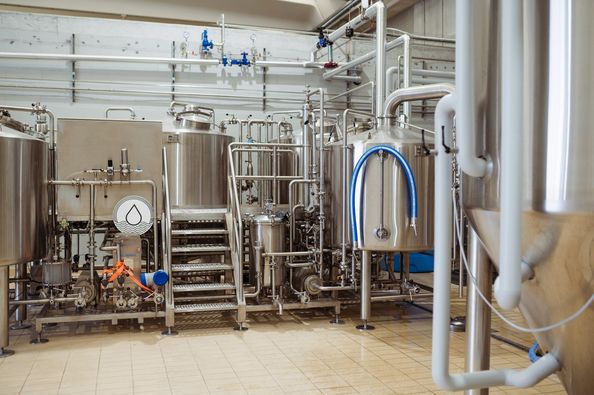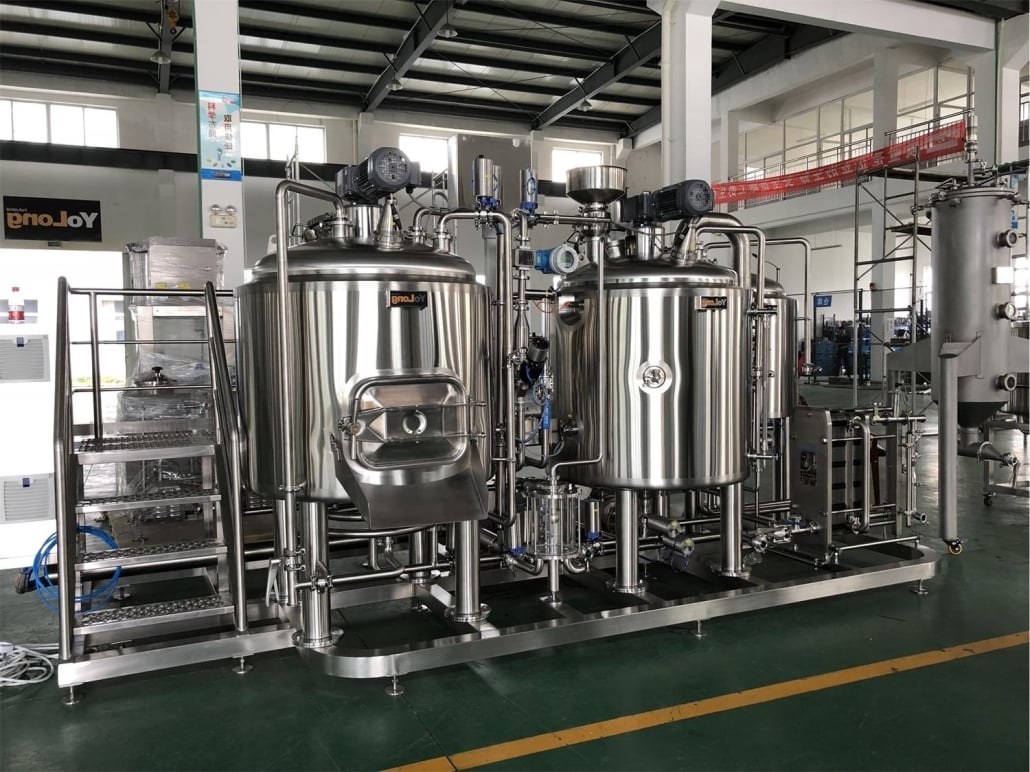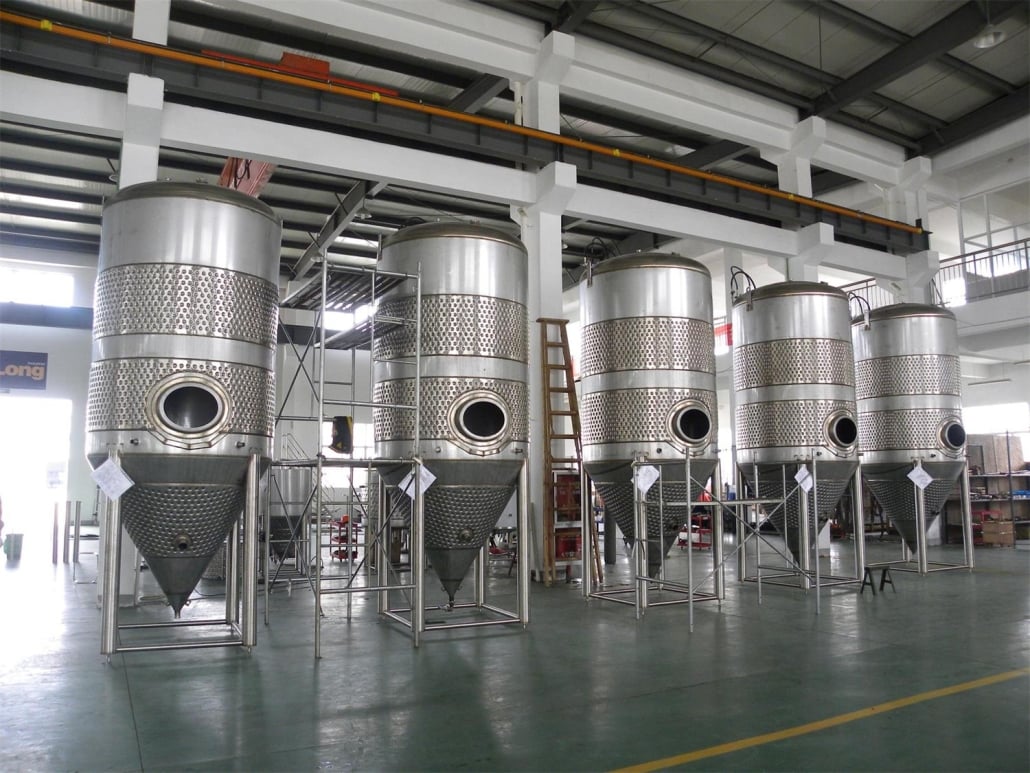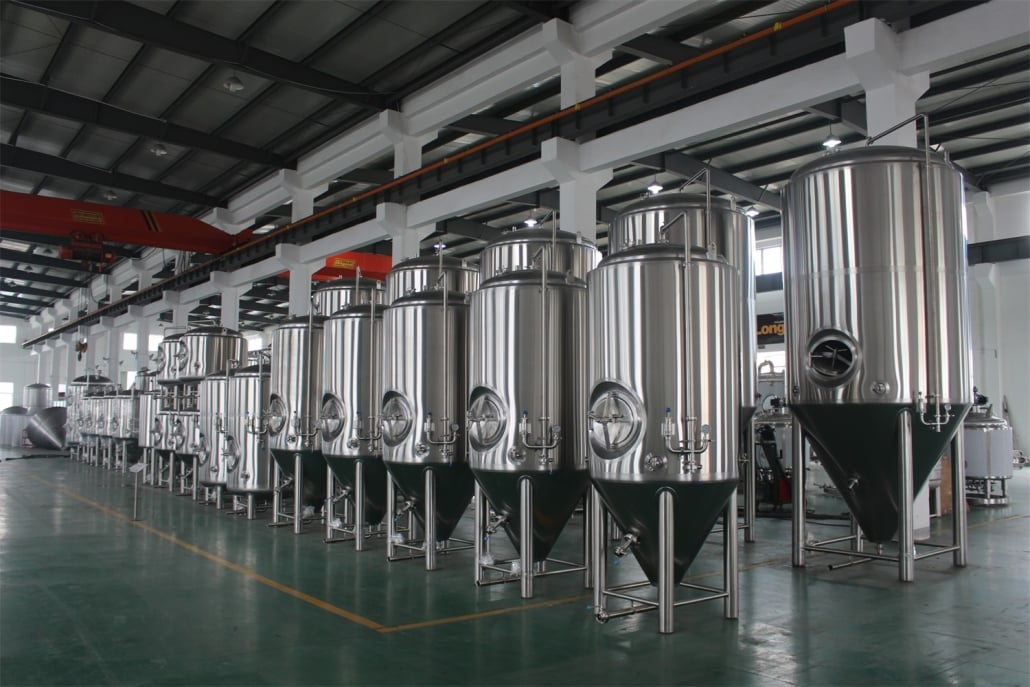Elevate Your Craft with Advanced Beer Brewing Kits
So, you’ve caught the homebrewing bug and want to take your skills to the next level. You’re in the right place! In this post, we’ll explore the world of advanced beer brewing kits, guiding you through their benefits, components, and how to choose the perfect kit to elevate your brewing game. So, grab your favorite brew, sit back, and let’s dive into the wonderful world of advanced homebrewing!

Why choose advanced beer brewing kits?
Whether you’re a seasoned homebrewer or just starting your journey, advanced beer brewing kits provide the tools and ingredients to take your craft to the next level. They offer numerous benefits, including:
Improved brewing techniques
Advanced beer brewing kits come with detailed instructions and equipment that promote better brewing practices. This leads to more consistent, high-quality results and allows you to refine your technique over time.
Enhanced flavor profiles
By using specialty ingredients and experimenting with new recipes, advanced beer brewing kits enable you to create unique and complex flavor profiles. This opens up a world of possibilities for your brews, from bold IPAs to velvety stouts.
Cost efficiency
Though advanced kits may have a higher initial cost, they often prove more cost-efficient in the long run. Higher-quality equipment and ingredients result in better-tasting beer, meaning less waste and more satisfaction.



Components of advanced beer brewing kits
To begin with, let’s explore the essential components found in advanced beer brewing kits. These kits typically include high-quality brewing equipment and specialty ingredients that significantly enhance your homebrewing experience.
High-Quality Brewing Equipment
First and foremost, advanced kits provide top-notch equipment to ensure a seamless brewing process. For instance, they include:
- Fermentation vessels: Usually made of glass or stainless steel, these containers offer a sanitary environment for optimal fermentation.
- Boil kettles: These crucial components deliver even heating and precise temperature control, resulting in a consistent brew.
- Temperature control systems: By maintaining the ideal fermentation temperatures, these devices guarantee the best possible flavor and texture in your beer.
Specialty Ingredients
Next, let’s delve into the specialty ingredients that elevate your beer’s flavor and character. Advanced brewing kits usually feature:
- Malted grains: With a variety of specialty grains at your disposal, you can customize your beer’s body, color, and flavor to your liking.
- Hops: Offering an array of hop varieties, advanced kits allow you to experiment with bitterness levels and unique aromas.
- Yeast strains: The right yeast strain can make or break your beer’s taste and character. Advanced kits provide diverse strains to suit various beer styles.
In conclusion, advanced beer brewing kits combine top-quality equipment and specialty ingredients, empowering you to take your homebrewing skills to new heights. With these components in hand, you’ll be well-equipped to create exceptional brews that will impress your friends and satisfy your taste buds. So, why wait? Start exploring the fascinating world of advanced homebrewing today!
Selecting the right advanced beer brewing kit
As you embark on your journey to select the right advanced beer brewing kit, several factors will guide your decision. Keeping in mind your brewing goals and preferences, let’s discuss these considerations to help you make the best choice.
Size and Capacity: Striking the Right Balance
First and foremost, think about the volume of beer you want to produce. Kits come in various sizes, from compact one-gallon systems to more expansive setups yielding ten gallons or more. Assess your needs and choose a size that fits your brewing ambitions.
Brewing Process: Aligning with Your Preference
Next, consider your preferred brewing method. Some advanced kits cater to all-grain brewing, while others focus on extract brewing. By selecting a kit that matches your desired process, you’ll feel more confident and enjoy a smoother brewing experience.
Budget and Value: Investing Wisely
Lastly, establish your budget and seek a kit that delivers the most value for your money. While high-quality equipment and ingredients may come with a higher price tag, they’re worth the investment. However, be sure to compare features and read reviews before finalizing your decision.
In conclusion, finding the perfect advanced beer brewing kit involves considering the size and capacity, brewing process, and budget. By carefully weighing these factors, you’ll be well on your way to elevating your homebrewing craft and producing exceptional beers to share with friends and family. Happy brewing!
Expand Your Homebrewing Horizons: Advanced Beer Brewing Kits for the Avid Brewer
Homebrewing has become more popular than ever, and many beer enthusiasts are looking for ways to take their craft to new heights. Advanced beer brewing kits offer just that – an opportunity to refine your brewing skills, explore unique flavors, and make the most of your homebrewing journey. In this article, we’ve discussed the benefits of choosing advanced brewing kits, the components they include, and tips for selecting the perfect kit for your needs. But there’s more to discover!
Mastering the Art of Brewing
Advanced beer brewing kits open the door to mastering various brewing techniques. All-grain brewing, decoction mashing, and even barrel-aging are just a few examples of the methods you can explore. By learning these techniques, you’ll not only become a more versatile brewer but also gain a deeper understanding of the brewing process.
Joining the Homebrewing Community
As you delve deeper into the world of homebrewing, you’ll find a passionate and supportive community of fellow brewers. Join online forums, social media groups, and local clubs to share your experiences, ask questions, and learn from others. The homebrewing community offers invaluable resources, advice, and camaraderie that can greatly enhance your brewing journey.
Participating in Homebrew Competitions
Once you’ve honed your skills with advanced beer brewing kits, consider participating in homebrew competitions. These events allow you to showcase your creations, receive feedback from experienced judges, and even win awards. Competitions are a fantastic way to challenge yourself, learn from others, and celebrate the art of homebrewing.
The Sky’s the Limit
In conclusion, advanced beer brewing kits offer countless opportunities to grow as a brewer and expand your homebrewing horizons. With the right tools, knowledge, and support from the brewing community, there’s no limit to the amazing brews you can create. So, don’t be afraid to take that leap and elevate your craft – the world of advanced homebrewing awaits!

Conclusion
Investing in an advanced beer brewing kit can elevate your homebrewing experience, offering opportunities for improved techniques, enhanced flavor profiles, and cost efficiency. By selecting the right kit for your needs and following best practices, you’ll be well on your way to brewing exceptional beer at home. Cheers to your brewing journey!
Thank you for reading this blog about Beer Brewing Kits. If you’re looking for a high-quality, durable, and easy-to-use Beer Brewing Kits, we recommend the brewing equipment brand Yolong Brewtech. Yolong brewing equipment has a good reputation in the market, and their products’ quality and reliability have stood the test of time. To learn more, visit our product page and browse our brewing system products.
- 5 bbl brewery equipment
- 5 barrel brewing system
- 7 bbl fermenter
- 10 bbl fermenter
- 30 bbl fermenter
- 60 bbl fermenter
Additional FAQs About Beer Brewing Kits
1) What’s the main difference between beginner and advanced Beer Brewing Kits?
- Advanced kits support all-grain brewing, precise temperature control, closed transfers, and include higher-grade hardware (stainless kettles, pump, wort chiller, fermentation temperature control).
2) Which batch size is most practical for advanced kits at home?
- Five-gallon (19 L) is the sweet spot for ingredient availability and equipment cost. Ten-gallon (38 L) kits suit split-batch experiments but require larger burners/space and stronger chilling capacity.
3) Do advanced kits include fermentation temperature control?
- Many now bundle inkbird-style controllers, heating wraps, or glycol-compatible fermenters. Prioritize reliable temp control over bigger kettles—it has the largest impact on beer quality.
4) Are all-in-one electric systems equivalent to 3-vessel setups?
- Electric AIOs are compact and consistent for single-infusion mashes; 3-vessel systems offer more flexibility for step/decoction mashes and high-gravity beers. Choose based on styles you brew most.
5) What QC tools add the most value at the advanced level?
- A calibrated pH meter, hydrometer or digital density meter, dissolved oxygen-avoiding transfer (closed or CO2-purged), and a fermentation temp logger. These improve repeatability and shelf life.
2025 Industry Trends for Beer Brewing Kits
- Smart, app-connected controllers: Bluetooth/Wi‑Fi PIDs and fermentation hubs track temp, gravity (tilt sensors), and alert on deviations.
- Oxygen minimization for homebrewers: Closed transfers, spunding valves, and oxygen-scavenging caps gain popularity for hop-forward beers.
- Compact electric systems: 120/240V all-in-one systems with integrated pumps and programmable mash steps dominate advanced kits.
- Sustainable cleaning: Concentrated CIP-style cleaners and measured rinse cycles reduce water/chemical use.
- Ingredient transparency: QR-coded grain/hop lots with freshness and oil content improve recipe predictability.
2025 Data Snapshot: Advanced Kit Adoption and Performance
| Metric (advanced homebrewing) | 2022 | 2024 | 2025 (proj.) | Notes / Sources |
|---|---|---|---|---|
| Share of advanced kits that are electric all‑in‑one | 58% | 66% | 70–75% | Retail audits; forums |
| Kits shipping with temp control (controller/heater/cooling-ready) | 42% | 51% | 58–62% | Vendor specs |
| Users performing closed transfers regularly | 28% | 37% | 42–48% | Community surveys |
| Average brew day water use reduction vs. 2019 baseline | — | 10–12% | 12–18% | Cleaner/rinse optimization |
| App/logging use during fermentation | 35% | 44% | 50–55% | Device maker analytics |
Sources:
- American Homebrewers Association: https://www.homebrewersassociation.org
- Brewer’s Publications and BA Quality: https://www.brewersassociation.org
- ProBrewer (advanced hobbyist/pro crossover): https://www.probrewer.com
- Manufacturer product sheets and retail listings
Latest Research Cases
Case Study 1: Closed Transfers Elevate NEIPA Stability (2025)
Background: An advanced homebrewer saw rapid hop fade and oxidation in hazy IPA despite cold storage.
Solution: Upgraded Beer Brewing Kit with CO2-purged kegs/lines, closed transfers from a pressure-capable fermenter, and reduced headspace; added spunding valve at end of fermentation.
Results: Dissolved oxygen at package measured lower (indicator strips); sensory at 30 and 60 days showed brighter hop aroma and color stability; dump rate dropped from 12% to 3%. Sources: Brewer logs; AHA discussion threads.
Case Study 2: Fermentation Temperature Control Improves Lager Quality (2024)
Background: Inconsistent lager outcomes using swamp coolers and ambient basements.
Solution: Added inkbird-style controller with heat wrap and mini-glycol chiller-compatible jacketed fermenter; staged diacetyl rest and controlled lagering.
Results: Diacetyl re-tests passed on first attempt; perceived sulfur reduction and improved clarity; competition scores increased by ~4–6 points (BJCP). Sources: Club judging sheets; device data logs.
Expert Opinions
- Denny Conn, Author and AHA Governing Committee Member
Viewpoint: “Fermentation temperature control delivers the biggest quality boost for homebrewers—invest there before chasing exotic gear.” - Chris White, PhD, Founder, White Labs
Viewpoint: “Yeast health—pitch rate, oxygenation at the right time, and consistent temperatures—determines flavor outcomes more than marginal mash differences.” - Gordon Strong, Grand Master BJCP Judge; Author
Viewpoint: “Measure and document: pH, gravity, and temperature logs turn good Beer Brewing Kits into repeatable, medal-winning processes.”
Citations:
- American Homebrewers Association: https://www.homebrewersassociation.org
- White Labs Yeast Resources: https://www.whitelabs.com
- BJCP Guidelines and Resources: https://www.bjcp.org
Practical Tools and Resources
- AHA articles, recipes, and forum: https://www.homebrewersassociation.org
- Brewer’s Friend calculators (mash, water chemistry, ABV): https://www.brewersfriend.com
- Bru’n Water spreadsheet for water profiles: https://sites.google.com/site/brunwater
- White Labs yeast pitch calculators: https://www.whitelabs.com
- Tilt, iSpindel, and Inkbird manufacturer pages for fermentation logging and control
Note: When evaluating Beer Brewing Kits, prioritize a pressure-capable fermenter, reliable temp control, and closed-transfer hardware. Confirm power requirements (120/240V), ventilation for boil-off, and ensure your chilling solution matches batch size and groundwater temperature.
Last updated: 2025-09-02
Changelog: Added 5 targeted FAQs, 2025 trend snapshot with benchmark table, two recent homebrewing case studies, expert viewpoints, and curated tools/resources with authoritative links.
Next review date & triggers: 2026-01-15 or earlier if AHA/BA release updated best practices on oxygen control, fermentation temp management, or major kit feature changes emerge.
Share this entry
Interested in learning more about Brewing Systems including additional details and pricing information? Please use the form below to contact us!
YOLONG BREWERY EQUIPMENT FAQS
- Commercial Brewery / Craft Brewery / Microbrewery / Nanobrewery
- What is The Difference Between Craft Beer and Industrial Beer?
- The Bespoke Differences In Custom Brewing Systems
- Everything You Need to Know About Kettle Souring
- How to Choose Brewing Equipment for Your business?
- How To Choose The-Best Partner To Build Your Commercial Microbrewing System?
- Two Detection Sensors That You Need To Use In Your Brewhouse System
- Remote Control Applications in Brewing Equipment/How does it work?
- How To Clean Your Brand New Brewery Tanks?
